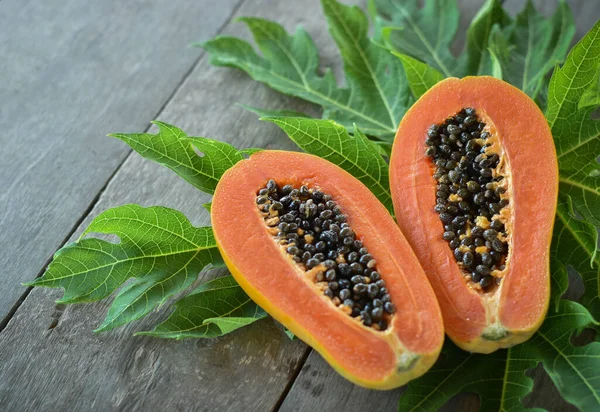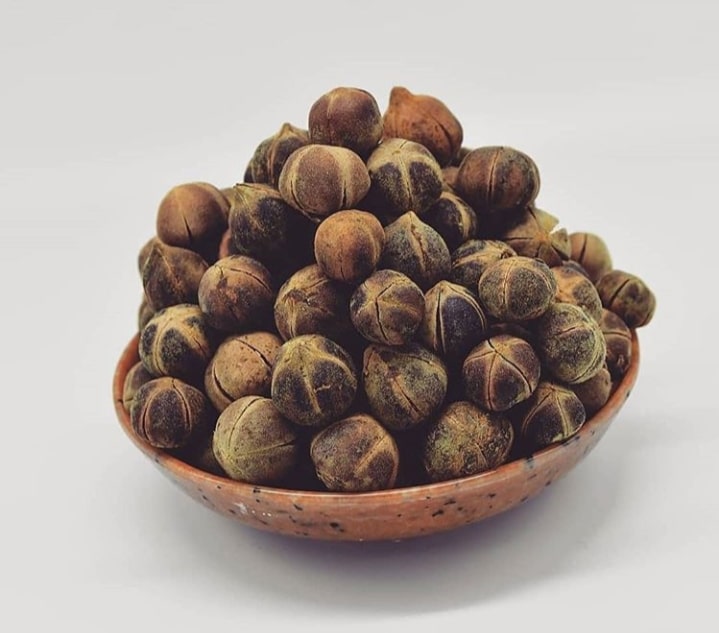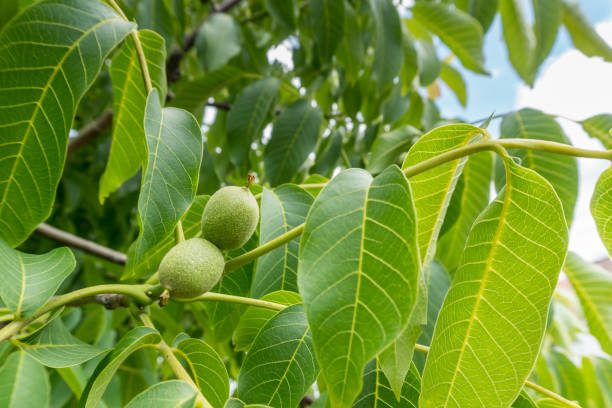Pawpaw, also called papaya, is amongst the most cultivated fruits in the world, especially in tropical areas. Unlike other fruits, where the only beneficial part is the seed, here, the pawpaw has shown broad pharmacological potential where the leaves, fruits, and seeds are medicinal and have been used for ages as herbal medicinal practices with some modern drugs containing some nutrient extracts from papaya.
Over the years, pawpaw leaves have been used in teas, juices, extracts, and tablets to promote health and treat illnesses.
Pawpaw leaf contains powerful plant compounds that have been shown to have medicinal potential in medical studies.
This article will discuss the nutritional composition of paw paw leaves and the major health benefits of pawpaw leaves.
Nutritional Composition Of Paw Paw Leaves
According to medical research, pawpaw leaves contain over 50 nutrients including vitamins A, B, and C, flavonoids, tannins, antioxidants, and dietary fiber among others.
Furthermore, pawpaw leaves have been found to have anti-cancer properties. According to a study published in the Journal of Ethnopharmacology, pawpaw leaves contain acetogenins, which have been shown to inhibit the growth of cancer cells in vitro.
Another study published in the Journal of Medicinal Plants Research found that pawpaw leaves contain alkaloids, which have been shown to have anti-cancer properties
8 Health Benefits of Pawpaw Leaves

1. Has anti-inflammatory properties
Pawpaw leaf contains papain, flavonoids, and vitamin E, which are nutrients and plant compounds with anti-inflammatory abilities.
In fact, pawpaw leaves have been used as a natural remedy for treating internal and external inflammatory conditions, such as skin rashes, arthritis, muscle aches, and joint pain.
A 2008 study demonstrated that pawpaw leaf extract could help reduce inflammation and swelling in the paws of rats with arthritis. However, no human studies have been done to ascertain the effects on humans.
Another study published in the Journal of Ethnopharmacology found that pawpaw leaves contain quercetin, which has been shown to have anti-inflammatory properties.
2. May increase blood production
A 2013 study found that pawpaw leaf extract increased the platelet count. The study, which was conducted on rats, stated that pawpaw leaf extract significantly increased the platelet and RBC counts in the rats. Hence, pawpaw leaves might be used as a treatment to boost blood production in humans and in animals.
3. Could help treat dengue fever and malaria
The significant health benefit of pawpaw leaves is their potential to treat dengue fever. Dengue fever is a kind of fever transmitted by a mosquito-borne virus that causes flu-related symptoms when you get contaminated, such as fatigue, nausea, vomiting, headaches, and skin rashes.
Severe cases of dengue fever have been linked to reduced platelet levels, which increases the risk of abnormal bleeding, which may become fatal if left unchecked and untreated.
Currently, there is no cure for dengue fever. But pawpaw leaves have been effective in treating the related symptoms associated with the fever.
Several case studies prove that pawpaw leaves are effective in helping treat dengue fever-related symptoms.
Some traditional herbal medicines have also used pawpaw leaf to treat malaria. Studies have show the pawpaw leaf extract might be effective in treating malaria.
4. May boost skin health
For a youthful look, you can orally consume the pawpaw leaves or extract the oil from them and apply it to your skin to achieve clear, soft, and youthful skin.
Also, pawpaw leaves contain a protein-dissolving enzyme called papain which functions as an exfoliate that aids the elimination of dead skin cells and reduces ingrown hairs, acne, and clogged pores.
Furthermore, pawpaw leaves enzymes have been used over the years to aid wound healing, and it helps reduce scar appearances on the skin.
5. May prevent cancer
In traditional medicine, pawpaw leaf has been used to prevent certain types of cancer, but there has not been modern research on its possibility.
Pawpaw leaf contains useful enzymes that help fight off and protect you against prostate and breast cancer cells. However, this has only been carried out in test-tube studies, and there hasn’t been a human experiment yet. Check out these case studies.
6. Regulates blood sugar levels
In traditional medicine, pawpaw leaves have been used as a natural remedy for treating diabetes. Research has shown that pawpaw leaves are rich in antioxidants linked to the blood sugar-lowering effects in man. Also, the leaves can protect the insulin-producing cells in the pancreas from danger and premature death.
7. Improves Digestion
Pawpaw leaf is rich in fiber that aids digestion in man and the development of papain. Papain helps in breaking down protein into smaller, easy-to-digest amino acids. In culinary practices, it is even used as a meat tenderizer. Also, a study has shown the direct link of papain from pawpaw leaf to reduced negative digestive symptoms, including heartburn and constipation.
Pawpaw leaves us used in teas and extracts as an alternative therapy to cure malfunctioning digestive symptoms, such as heartburn, bloating, and gas.
8. Good for hair growth
The topical application of pawpaw leaf juices help improve scalp health and promote hair growth. Pawpaw leaf is rich in antioxidant components, such as flavonoids and vitamin E, which are essential for healthy hair.
Also, pawpaw leaf is said to support hair growth by fighting off Malassezia, a fungus responsible for some dandruff that inhibits hair growth in men.
Conclusion
To get the health benefits of pawpaw leaves, you can decide to take it in its natural form as an extract or oil. It depends on which is most convenient for you and what function you want to achieve.
Please discontinue usage if you begin to develop allergies while using papaya leaves. You must consult your doctor before including pawpaw leaf into your diet or using it as herbal or alternative medicine. Remember that there are little or no human medical studies on the health benefits of pawpaw leaf.
YOU SHOULD ALSO READ:
- 7 Grand Health Benefits of Guava Leaves
- 7 Captivating Health Benefits Of Monkey Kola
- 7 Potential Health Benefits Of Justicia Carnea (Ewe Eje)
- Morinda Lucida (Oruwo Leaves): Health Benefits and Effects
- 6 Health Benefits of Hog Plums (Iyeye Leaves)
- Costus afer (Okpete): Health Benefits and Side Effects
- 7 Health Benefits of Osu Fruit (Hunteria umbellata)
- 11 Health Benefits of Ogirisi Leaves (Newbouldia laevis)
- 8 Specific Health Benefits of Awolowo Leaves (Siam Weed)
Collins Nwokolo is a human physiologist, writer and health enthusiast. He loves writing helpful articles on health and fitness, which he enjoys sharing with everyone.









